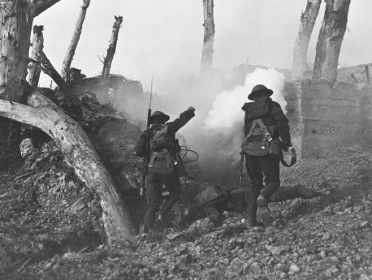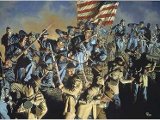US Entry Into World War 1

US Neutrality
Woodrow Wilson declared US neutrality shortly after the outbreak of World War 1. He wanted to keep the US out of war for several reasons. Firstly, he followed the traditional policy of isolationism or nonintervention in the European affairs which dominated the US foreign policy since the era of the founders. And World War 1 was perceived as a European military conflict which it initially was. Secondly, Wilson believed in a peaceful settlement of international disputes and resented both the Allies and Central Powers their imperialism and militarism. The public opinion was another important factor Wilson and his cabinet had to take into account. The American people were divided although those who were pro-British seem to have been in a slight majority. In addition, the Americans did not want to get involved in the war they had nothing to do with.
Sinking of Lusitania
Both Britain and Germany were violating US neutrality by acting against US shipping in Europe forcing Wilson to protest in both London and Berlin. US public opinion on World War 1 remained mostly unchanged until May 1915 when the German sinking of the British passenger ship Lusitania killing 1,198 people of which 128 were Americans shifted the opinion of the American people against Germany. However, they still hoped that the US will stay out of war in Europe and reelected Wilson as president in 1916 partly also due to his determination to remain neutral.
US Declaration of War on Germany
Wilson’s policy and public opinion on nonintervention in Europe changed decisively in early 1917 when the Germans resumed unrestricted submarine warfare that was suspended after the sinking of Lusitania. At the same time the British intercepted the so-called Zimmermann note revealing that Germany was proposing a military alliance to Mexico in return for parts of US territory. Sinking of American merchant ships by German submarines in March and revelation of the Zimmermann note’s content caused an outrage among the Americans who fully supported the US declaration of war on Germany on April 6, 1917.
US Contribution to the Allied Victory in World War 1
The Germans overestimated the effects of their submarines, while the American troops arrived sooner than expected. The first Doughboys as American troops were often called landed in France in June 1917 and at the beginning of the Hundred Days Offensive in August 1918, there were over 1 million Americans on the Western Front. Although the US entered World War 1 relatively late the American Expeditionary Forces made an essential contribution to the Allied victories in the final phase of the Great War which ended with complete defeat of Germany and its allies.




